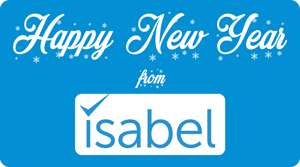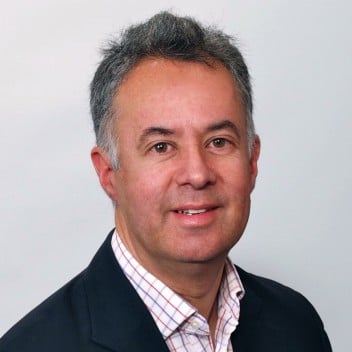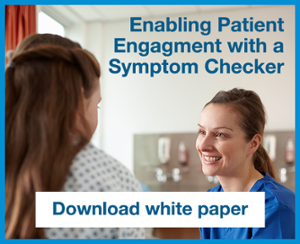- Privacy Policy
- Terms & Conditions
- Contact us
- ©Isabel Healthcare 2025
What is the future of health AI? Reflections and predictions for 2019
 It’s the start of 2019 and many exciting things are on the horizon for Isabel and the industry of AI in medicine as a whole. As we go into January we thought we would take a look back on the year that has passed, as we have done before, and reflect on the huge steps health AI has taken this year. We'll also look ahead to 2019 and beyond, predicting what we think will be the hot topics of the year ahead. Indeed, market research company Frost and Sullivan have predicted that health AI will grow at a compound annual growth rate of 66% over the next 4 years, so the future of health AI is certainly looking interesting.
It’s the start of 2019 and many exciting things are on the horizon for Isabel and the industry of AI in medicine as a whole. As we go into January we thought we would take a look back on the year that has passed, as we have done before, and reflect on the huge steps health AI has taken this year. We'll also look ahead to 2019 and beyond, predicting what we think will be the hot topics of the year ahead. Indeed, market research company Frost and Sullivan have predicted that health AI will grow at a compound annual growth rate of 66% over the next 4 years, so the future of health AI is certainly looking interesting.
Symptom checkers
2018 has seen many more symptom checkers, aimed for use by patients, enter the market. From chatbots to decision trees and diagnosis tools within apps, the medical world is catching up with artificial intelligence internet searches, and applying the technology to help people everywhere research their symptoms. With so many products coming the market, the quality will of course vary enormously, as will the methods and systems behind the tools. We believe the Isabel Symptom Checker, which is based on our professional tool and has actually been available since 2012, is a good blend of accessible research and easy to use functionality, all while not trying to replace the professional advice which can only be given by a doctor. We are aware that some symptom checkers can lack the vital aspect that they be used with your doctor, not instead of, and it is this ethos which we are passionate about. We've written a white paper this year on the different types of symptom checkers out there, with our guide to choosing the right one for a hospital or institution to adopt for their patients.
Wearable tech
It’s been a buzz word ever since the first smart technology began emerging, and wearable tech is slowly but surely gaining more attention in the medical world. September 2018 saw tech giant Apple announce an ECG heart monitor on their Apple Watch, the first of its kind. Wearable tech has been able to measure basic heart rate for a while now, but this development means users can get a basic electrocardiogram reading, which can in turn reveal issues with the heart such as atrial fibrillation. It’s a clever piece of tech, but is still in its infancy; at the moment, the Apple ECG feature is a single-lead ECG, whereas that you have done in a doctor’s surgery or by a paramedic is a 12-lead ECG. If this feature takes off, we can imagine Apple developing this feature further to potentially provide more in depth ECGs and functionality for other vitals and health monitoring.
Femtech
Towards the end of 2017 and the beginning of 2018, the feminist movement as a whole entered a new era, with the Times Up movement and #metoo campaign taking flight. Accompanying this, many women in the medical industry have called for more technology aimed at women’s health. Tania Boler CEO of startup Elvie says ‘We are witnessing three big trends - the big feminist surge, the tech revolution in connected devices and the paradigm shift towards individuals taking charge of their own health.’ From apps that work that work in conjunction with thermometers to measure ovulation and help family planning or be used as a form of smart contraception, to tiny ‘smart’ silicone pods from Elvie that help new mothers retrain their pelvic floor muscles - the femtech industry is taking off, and we have 2018 to thank for that.
Health AI in 2019 and beyond
The health tech industry is certainly coming alive and this is something we at Isabel will always encourage. Improving diagnosis is our priority and we believe technology can have a big part in this endeavour, so we are keen to see further developments in the world of symptom checkers and diagnostic tools. We predict that patient-generated data will prove very useful and more prevalent over the coming year, and we hope this can be integrated into the tools used by medical professionals and help improve the diagnostic process for patients and doctors alike. Overall, people are starting to take charge of their own health, and we think this can only be a good thing for the patients and the doctors, as we all work together.
As the tech and systems grow, however, so does the medical world itself, with new disease presentations and treatments being discovered all the time. 100 years ago physicians could know everything there was to know about someone’s health, but nowadays that is becoming more and more impossible, with thousands of diseases and sub-categories for those diseases, and experimental treatments being developed daily. It’s wonderful that we are learning more and more about our bodies and how they can be cared for, but its time our technologies caught up and chipped in to help, not hinder or replace, the physicians and patients working so hard to keep us healthy.
Download our white paper on the different symptom checkers out there and how to choose the best one for patient engagement:

Jason Maude
Jason is the CEO and Co-founder of Isabel. Prior to co-founding Isabel, Jason spent 12 years working in finance and investment banking across Europe. His daughter, Isabel, fell seriously ill following a misdiagnosis in 1999 and this experience inspired Jason to abandon his city career and create Isabel Healthcare Ltd.
Subscribe Here!
Recent Posts
Isabel DDx Companion with ChatGPT Integration - to help you diagnose even faster
At Isabel Healthcare, we’ve always been driven by one goal: to make clinical reasoning faster,..Virtual Triage: Do more questions lead to better patient outcomes?
One of the common misconceptions related to virtual triage / symptom checker tools is that the more..List Of Categories
- Differential Diagnosis Decision Support
- Differential diagnosis
- Symptom Checker
- Symptoms
- Medical Error
- Patient Disease Information
- Disease
- Clinical Decision Support
- Diagnostic Decision Support
- Isabel 1 Minute Read
- Diagnosis Error
- Diagnosis Skills Cases
- Healthcare Informatics
- Clinical Reasoning
- Evidence-based Medicine
- Medical Education
- Patient Engagement
- Symptom Triage
- Nurse Practitioner Education
- Nursing Decision Support
- Partnership
- Public Health
- COVID-19
- EHR
- Patient Empowerment
- Patient Safety
- rare disease

Start your FREE Trial today
Try the Isabel Pro DDx generator for 30-days - no payment card details required.




